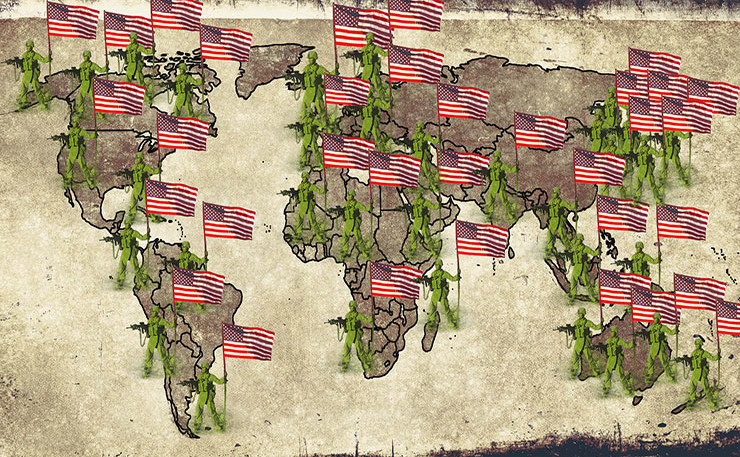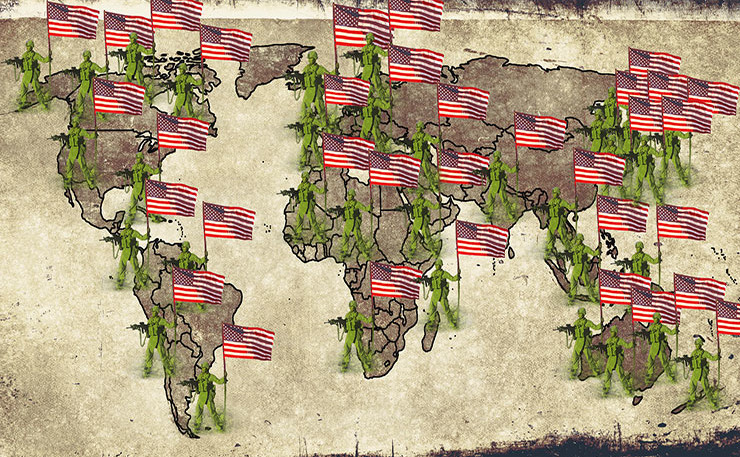
The United States government, through arms including the US Department of State and the US Agency for International Development (USAID), has long been promoting violence and destruction in previously relatively peaceful and prosperous places around the world. It has done so through supporting sides in conflicts and stirring up conflicts in an effort to determine who governs — either seeking to prop up or overthrow national governments.
This week, the US House of Representatives passed by a voice vote a bill (HR 2116) titled the Global Fragility Act and carrying this short description of its intent: “To enhance stabilization of conflict-affected areas and prevent violence and fragility globally, and for other purposes.” Having been approved in the House, the bill now can proceed to consideration in the US Senate.
You might expect that the Global Fragility Act would, through actions such as placing limits on or defunding activities of the State Department and USAID, seek stop the US from intervening abroad. That would be a welcome development.
Unfortunately, things tend not to work that way in Washington, DC. In Washington DC “up” is “down” and, as George Orwell wrote about the dystopia in his novel 1984, “war” is “peace.” The Global Fragility Act is a bill to enable the US government to further “break” the world through, among other things, giving the State Department and USAID hundreds of millions of dollars a year to stir up more trouble and further attempt to control who governs in countries around the world.
The bill authorizes appropriating 200 million dollars each of the next five years into a new Stabilization and Prevention Fund administered by the State Department and USAID. And the bill directs that this money be spent on the kinds of purposes typically used to excuse US efforts to support or overthrow governments across the world — supporting “stabilization of conflict-affected areas;” preventing violence; and countering “Islamic State of Iraq and Syria, other terrorist organizations, or violent extremist organizations.”
On top of that, the Global Fragility Act also provides an additional 30 million dollars a year for the next five years to a new Complex Crisis Fund. This fund, the bill directs, will be administered by USAID. The bill states that USAID is to spend the money “to support programs and activities to prevent or respond to emerging or unforeseen foreign challenges and complex crises overseas.” It does not get much more open-ended than that. In short, USAID can use the fund to pursue intervention overseas in just about any way imaginable.
Rep. Eliot Engel (D-NY), the chairman of the House Foreign Affairs Committee and the sponsor of the Global Fragility Act, touted on the House floor this week before the bill was approved by a voice vote that the legislation “gets at the heart of what we want to see from our diplomatic and development efforts around the world: helping places already torn apart by violence to recover and preventing the start of violence in other places where factors are ripe for its outbreak.” Following Engel, Rep. Michael McCaul (R-TX), the ranking member of the House Foreign Affairs Committee and the bill’s lead Republican cosponsor, declared the bill “will make the world a safer place long term.” Don’t believe a word of it. The Global Fragility Act promises to increase US government efforts bringing to the world more violence, more destruction, and more fragility, not less.

